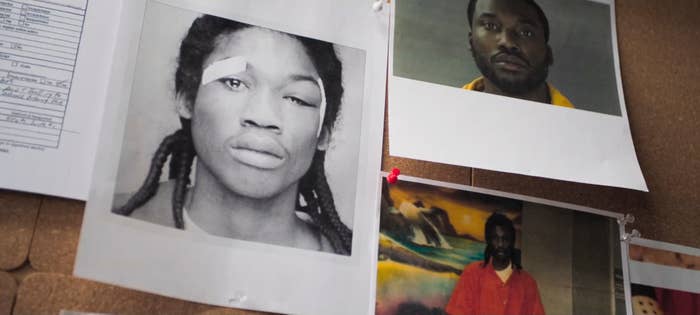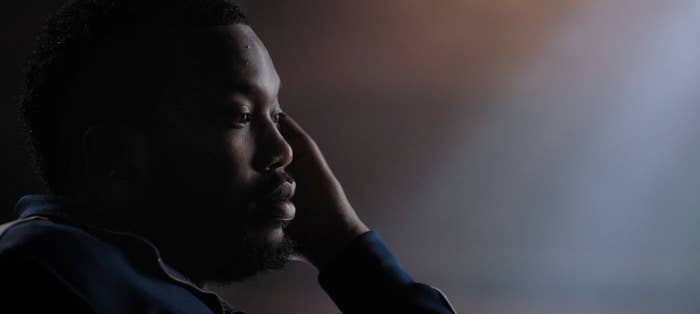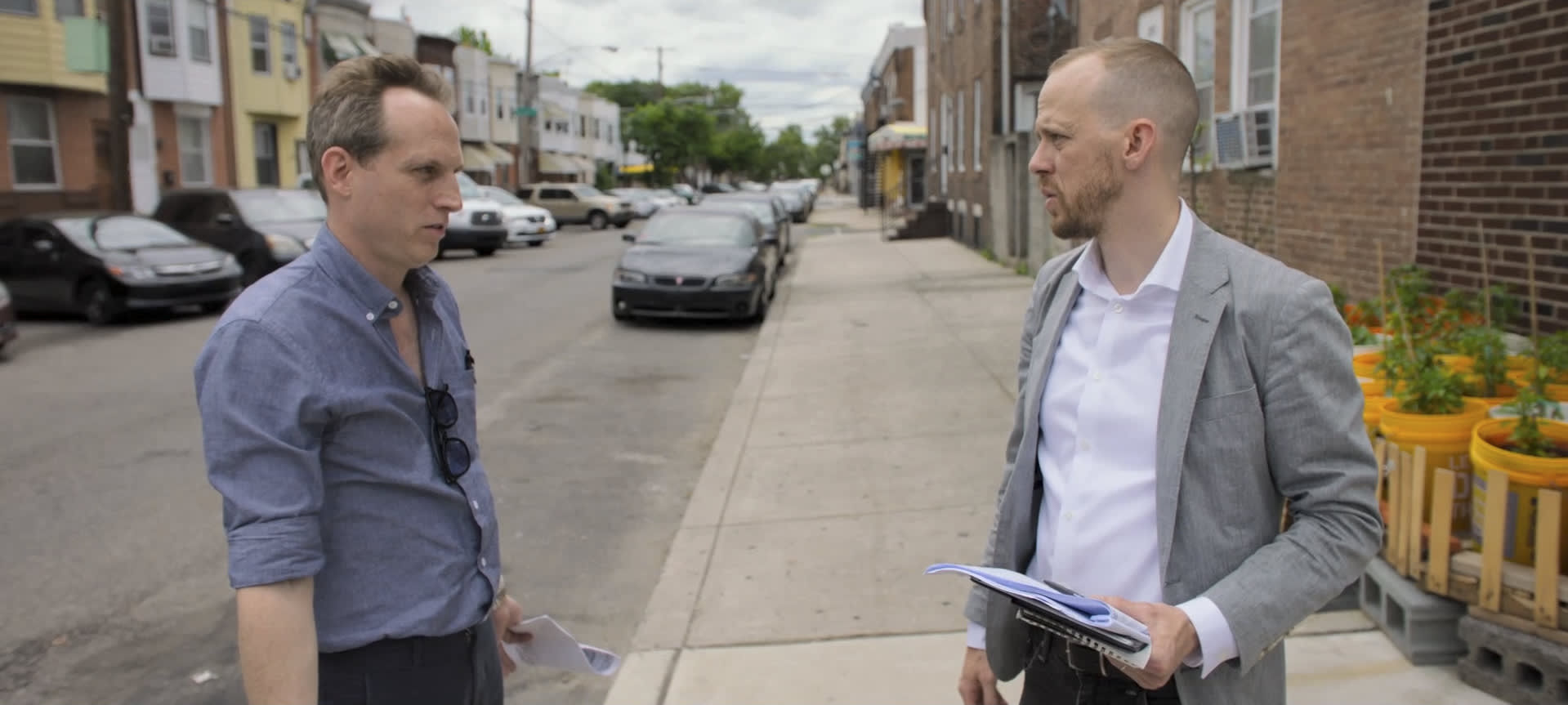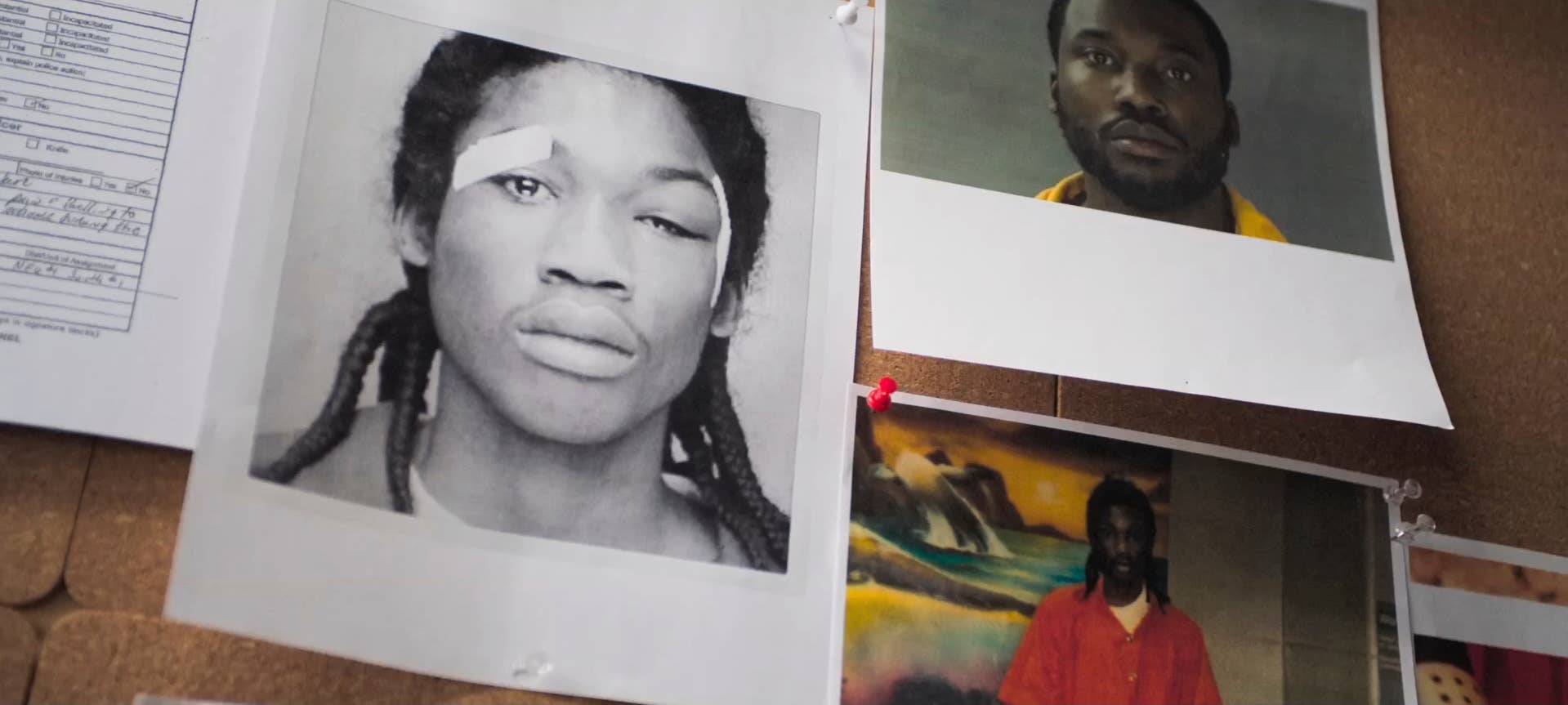
In 2019, you don't have to look far to find riveting true crime docuseries. Everyone from HBO to Amazon Prime have taken part in this, and 2019 has seen two of the most talked-about cases getting their own documentaries: The Case Against Adnan Syed, which looked at the case that had the world shook up when the first season of Serial premiered, and Free Meek, which told the story of Meek Mill's continued history in the criminal justice system. At the center of both docuseries is QRI, an investigative firm founded by Luke Brindle-Khym and Tyler Maroney.
In both series, QRI was hired to investigate both cases—while they reviewed Adnan Syed's now 20-year-old situation for the filmmakers, their work on Meek's case actually resulted in his original 2008 conviction being overturned. Their work goes from nailing down key pieces of information in a sea of paperwork and evidence to hitting the pavement and tracking down integral sources and reexamining everything from previous investigations to get a fresh set of eyes on a case.
We recently got to hop on the phone with Luke Brindle-Khym to talk about QRI's work on both cases, their goal as a company, and some of the hardest things that went into getting Meek's conviction overturned.

I was surprised when I watched the first episode of Free Meek and realized I'd seen you before on HBO's The Case Against Adnan Syed. I thought it was interesting that you guys were featured in the two of the bigger docuseries this year.
I think the timing this year was lucky for us in that we do a lot of wrongful conviction cases, a lot of criminal justice reform cases. This year we had the wonderful opportunity to work on films about two of the more prominent cases of wrongful convictions in recent years; that case and the Meek case. I think it's important to know that that's the reason we got involved in the Meek case. It's not that all of a sudden "oh look they saw the documentary, let's have these guys come in." We have been doing wrongful conviction cases for many years. I think the reason we decided to do that is because one of our values at the firm is how do we use our skills to advance justice, whether its social justice or criminal justice.
Now just for context so we're clear, what was the rough time frame that you were filming what ended up in The Case Against Adnan Syed compared to the Meek case? I believe you were doing the Meek case in 2018?
We got involved with Meek to support his criminal defense back in late November 2017, right after Judge Brinkley sentenced Meek to two-to-four years for a very minor probation violation. We did the bulk of our investigation in the first half of 2018 and that's what led to Meek getting released from prison initially and then more recently the conviction getting thrown out by the appeals court. The Adnan Syed case, we started that in 2016 and one of the big differences in the two situations is that with the Adnan Syed case we were hired directly by the filmmaker to kind of guide her and guide the viewers through a case that was 20 years old.
With the Meek project, we were hired by Meek's advocates and benefactors, to help with a live case. And, so, of course, Meek's film tells the story of a pending case right now and we're not looking back 20 years the way we did with the Syed case. I think it's also important to note that there's a difference between an individual miscarriage of justice, which is what many people believed the Adnan Syed case is, versus a systematic miscarriage of justice, which is what I believe Meek's case [is]. Meek's case is not unique. There are four and a half million people in this country—most of who are black or brown—who are trapped under this probation cycle where they are effectively under the thumb of the court system for years and years on end. Meek's situation is just sadly all too common. It's a tragedy for the people involved in it but in Meek's case, it is a tragedy for everyone, the entire country. We're not free if we can treat four and a half million people going between [these systems], they're caught in this probation trap. You're not free, I'm not free.
When you're researching a case likes Meek's and investigating, what would you say are some of the hardest or most difficult parts about gathering and unearthing this information?
I was talking to Meek's mom and asking her what she remembered from the time he was arrested and she told [me] that she had these images, these photographs, [from] the night that Meek was assaulted by the police and arrested. Some of these photos actually appear in the film, but they also showed his uncle's home covered in blood, smeared on the walls and on the floors. The pictures of Meek in the hospital; this is not a cop being rough. This is like a violent assault, this big blood pour. With a case like this, you're confronted with a fact that we have two justice systems in this country; one for people of color and one for white people. I'm a white person and I have to come to terms with this white privilege.

I don't want to say that this is a happy story, but your research and investigation was paramount in getting the conviction overturned. I don't know what the success rate of things like this is, but can you talk about the emotions you go through when you do this work and you get positive results?
Thanks for saying that. The sad truth is that in many cases where we suspect there's a wrongful conviction, it's just not possible to prove it upon inspection of a court. So what makes Meek's case so unique is that we were able to prove it and it feels so amazing. It's exhilarating, but at the same time its credit that we have to share, we have to recognize it. What Meek has been consistently saying is that he never pointed the gun at the officers, and he's been saying that for ten years and people haven't heard a thing. So when I first met Meek in the jail outside of Philadelphia, I was struck about how adamant he was, how relentless he was on this point that he never pointed the gun at the officer. He was trying to get someone to hear him and believe that. I just [thought] "he's really adamant about this, let's investigate it."
It's important to note that he's not out of the woods. His conviction has been thrown out but he still has a target on his back as he is technically speaking still accused of these crimes and could be prosecuted for them if the Philadelphia District Attorney decides to pursue a re-prosecution. The reality is that it's a victory in one battle but not the war. We're determined and we continue on so we fight, not just for Meek but for everybody else who is trapped in this predicament.

